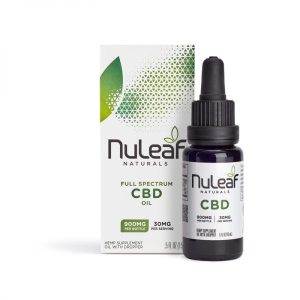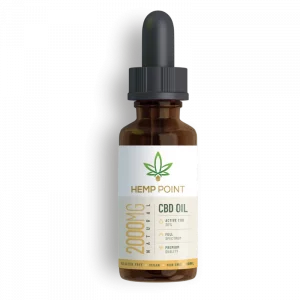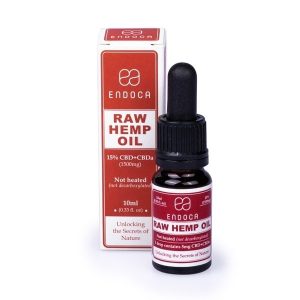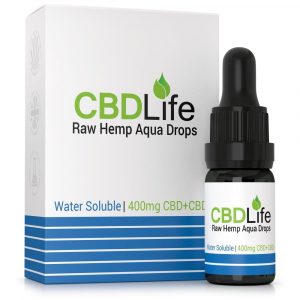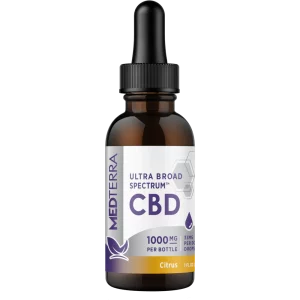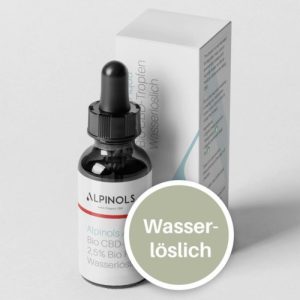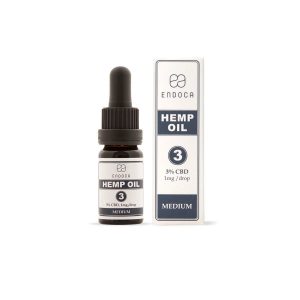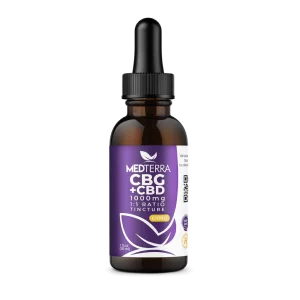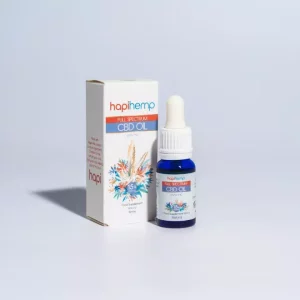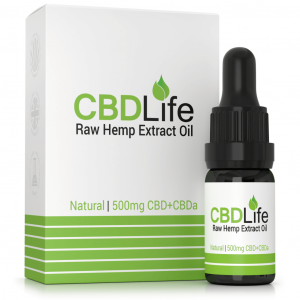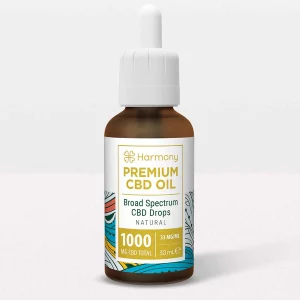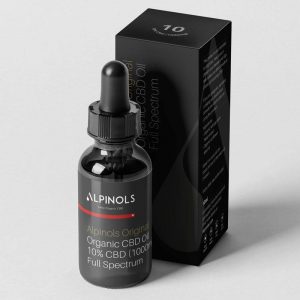CBD Oils
Showing 1–12 of 48 results
What do you think of when you think CBD Oils? Oh, it’s that cannabis oil stuff, right? It’s meant to cure cancer and all that jazz, yeah? Well, not exactly…You’ve probably (and rightfully) rolled your eyes at the glorified marketing messages and sales-speak that’s so often used in relation to CBD Oils. Believe us, we’ve heard it all.
Because of this, you may have discounted it as just another wellness fad. But we want to level with you, it’s not all fake news. There is a growing body of research that shows that CBD has the potential to revolutionise the health and wellness landscape.
For good.
But how can you find the right CBD oils for you? How can you make sure you avoid those CBD cowboys trying to make a quick buck? You need to be in the know, and fast. That’s where we come in. Read on for CBD Scanner’s complete guide to CBD tinctures. Find the best tinctures available in the UK today, and at the best prices. We can make sure you don’t get caught out.
Let’s Talk CBD Oils: An Introduction
You know the ones, those funny little bottles, vials and tinctures that seem to have exploded on the UK wellness scene. It might feel like CBD drops and sprays are everywhere, but that can make the landscape feel all the more confusing.
That’s why we are going to break it down for you. To avoid fake news and all that jazz.
When it comes to CBD, there are all sorts of buzzwords being thrown about. You’ve probably overheard people waxing lyrical about things like bioavailability, carrier oils, and the merits of different strength variants.
But let’s get back to basics.
What Are CBD Tinctures?
CBD (Cannabidiol) drops are part of the cannabinoid family, which means they belong to a group of chemicals that are naturally derived from cannabis plants. Pure CBD (CBD isolate) comes in powder form, which makes it tricky to control dosages.
This is the logic behind the bright idea to infuse CBD into oil-based solutions. Put simply, liquid drops are easier to measure.
Are They Psychoactive?
CBD drops are non-psychoactive.
Translation: they will not get you high.
This is because most if not all of the THC has been removed from CBD products that you see on the UK market to conform with Home Office regulations (no more than 1mg).
However, CBD does interact with the body’s natural endocannabinoid system – a fancy word for one of the body’s regulatory systems (which helps to maintain internal balance).
Public opinion has begun to link CBD to a whole host of other benefits, which explains its growing popularity.
Reminder: CBD oil is not the same as Hemp oil. Hemp oil comes from hemp plant seeds, but more often than not, it contains little or no cannabidiol.
How Do I Choose?
Given the range of drops on the market, picking the one that’s best for you can feel a bit like the Netflix dilemma: too much choice. But for starters, you should choose drops based on the strength you want or need.
Strength
Yes, CBD drops have different flavours and strengths. Lower strength drops (where most people prefer to begin) tend to refer to CBD oils that are between 300 and 500mg.
It is recommended that CBD newbies start with a lower strength oil and mature slowly towards a higher strength solution, although, of course, no two experiences are the same.
Given the range of drops on the market, picking the one that’s best for you can feel a bit like the Netflix dilemma: too much choice.
People can also tailor their choices down to personal preference.
The next level (or mid-strength) usually refers to a concentration of about 1000mg of CBD oil. High-strength drops tend to contain around 2000mg to 3000mg of CBD oil.
At this point in time, Naturecan stocks some of the strongest drops on the UK market, with 6,000mg concentration CBD Oil available for purchase.
Full Spectrum, Broad-Spectrum or Isolate?
CBD products all come in one of three distinct categories: broad-spectrum CBD, full-spectrum CBD and CBD Isolate.
CBD Isolate
CBD isolate is the easiest to explain as it is simply pure cannabidiol, plain and simple.
With these products, only the CBD compound is extracted from the cannabis plant, meaning that you are getting an isolated substance in your product so you know exactly what you’re taking and in what dose.
In addition to this, CBD isolate is almost always the cheapest type of CBD product that you can buy.
Sounds perfect, right? You know exactly what you’re taking and it’s at the lowest price.
Sure, but for one thing…
The Entourage Effect

The Entourage Effect is a bit more complicated than these guys… no offence fellas
No, I’m not talking about a bunch of dudes hanging out with their film star buddy (don’t worry if you don’t get it), I’m talking about that scientific phenomenon that makes different substances working together greater than the sum of their parts.
Dr Ethan Russo, the world’s leading scientist on the entourage effect, states in a 2019 paper that “the case for Cannabis synergy via the “entourage effect” is currently sufficiently strong as to suggest that one molecule is unlikely to match the therapeutic and even industrial potential of Cannabis itself as a phytochemical factory.”
Say whaaaat?
It’s quite simple really, CBD isolate isn’t gonna cut it in terms of effectiveness when compared to CBD which still has some or all of its naturally-occurring molecular partners.
In other words, if there’s still some of the original cannabis plant left in the product at the end, it’s gonna be more effective.
If you want to learn more about this mysterious phenomenon, check out our in-depth guide to the entourage effect.
Where Full and Broad-Spectrum CBD Comes In
You may have guessed by now, but these types of CBD products do have some of that organic added goodness left in, the difference between the two is simply what has been left in.
In full-spectrum CBD, all of the original elements that make up the plant remain, but usually certain compounds, like THC, have their levels reduced to ensure that they comply with legal limits.
With broad-spectrum CBD, these restricted components of the cannabis plant are removed almost entirely, making them a better option for those of us who may be drug tested at work and don’t want to run the risk of there being any THC in our bodies.
It’s worth reiterating that the amount of THC (the psychoactive component of cannabis) legally allowed in CBD products WILL NOT GET YOU HIGH, however, there have been cases whereby there are higher levels of THC in the product than permissible.
“The case for Cannabis synergy via the “entourage effect” is currently sufficiently strong as to suggest that one molecule is unlikely to match the therapeutic and even industrial potential of Cannabis itself as a phytochemical factory.”
Dr Ethan Russo, The Case for the Entourage Effect and Conventional Breeding of Clinical Cannabis: No “Strain,” No Gain
Disclaimer: We have done our best to feature brands on our site which are known for their good manufacturing processes and transparency, although they themselves are solely responsible for the products that they put out. If there is an element of their process which is not 100% transparent, we have done our best to point this out.
What Do I Do With CBD Drops and Sprays?
Kind of what it says on the tin.
Drop or spray some oil under your tongue (tailor dosage to preferences & needs). Hold the oil under the tongue for anywhere between one or two minutes.
The oil will then begin to absorb through the mouth sublingually, and into the bloodstream. When this is done, swallow the rest.
It’s as easy as that.
What Is Bioavailability?
When talking about CBD, the term bioavailability is used to refer to the amount of CBD that the body actually absorbs in relation to the amount that it takes in.
How does this work? Well, how you take CBD is the primary determinant of bioavailability, with vaping CBD thought to be the highest and eating CBD (CBD edibles and CBD capsules) the lowest.
Taking tinctures under the tongue is somewhere in the middle.
When talking CBD, the term bioavailability is used to refer to the amount of CBD that the body actually absorbs in relation to the amount that it takes in.
For CBD tinctures specifically, bioavailability is largely governed by the carrier oil (or more specifically, by the kind of fat molecules that are found in the carrier oils).
What Are Carrier Oils?
These are the oil-based solutions that CBD is infused into.
When consumed, the CBD-infused oil binds with fat molecules in the body, which will then be broken down. The variations in the types of fat molecules will change the way that CBD can be transported into your system.
And that’s why the bioavailability of the oil is largely dependent on the carrier oil.
There are many different carrier oils. We’re going to give you the low down on some of the most popular ones:
Fractionated Coconut Oil (MCT oil)
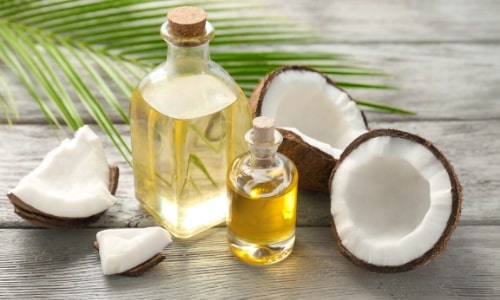
Coconut Oil is widely considered to be the best CBD carrier oil
Fractionated coconut oil (MCT oil) is high in saturated fat, which is a good thing in CBD-speak.
Why? Because it is high in medium-chain triglycerides (MCT), the technical term for a smaller type of fat molecule. MCTs are absorbed straight through the liver, meaning they are easily taken up by the body.
Fractionated coconut oil is still coconut oil, with one big difference: the longer fat molecules have been removed to spotlight the MCT. This is why MCT oil is often spoken of as the preferred carrier oil for CBD.
Oh, and it’s believed to have antifungal, anti-inflammatory and antibacterial properties too, among a host of other health benefits.
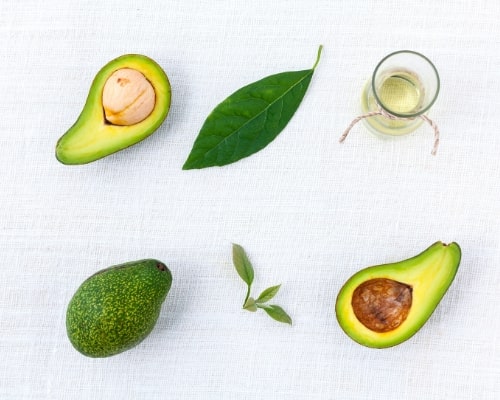
Avocado oil is a pricey but healthy option for a carrier oil
Avocado Oil
This is one of the pricier options (unsurprisingly).
Avocados have become all the rage in millennial brunch culture, praised for their high levels of vitamins A, D & E, as well as containing large concentrations of oleic acid, thought to be partly responsible for its health benefits.
The research for avocado oil being a healthy option is pretty strong, with one 2019 article stating that “on the basis of the available data, avocado oil has established itself as an oil that has a very good nutritional value.”
From a nutritional standpoint, avocado oil seems like a good choice of carrier oil for CBD tinctures.
Olive Oil
Olive oil has been hailed by Mediterranean diet fans for its antioxidizing properties, but when it comes to CBD, olive oil is known for its monosaturated fat molecules (normally in the form of oleic acid, which is said to have anti-inflammatory effects).
Being larger fat molecules, these monosaturated fats might slow the process of absorption into the body.
Olive oil is also recommended by many for its fruity taste.
Grape Seed Oil
Grape seed oil is mainly made up of polyunsaturated fats. To put it simply, these fat molecules are less effective carriers of CBD.
Because grape seed oil is less greasy than other options, you may come across it in hair and beauty ranges.
Palm Oil
This is, in our humble opinion, the one to avoid.
“Why?” you ask. Well, we at CBD Scanner prefer to direct our customers to products which are sustainable, and palm oil is simply not that in most cases.
The harvesting of palm oil has been linked to deforestation, animal cruelty and climate change.
Remember that notorious Iceland ad? For those that don’t, it highlights the devastation that palm oil production has had on the orangutan species.
If you’re going to opt for palm oil, we’d recommend making sure it’s the sustainable sort.
What’s The Verdict on CBD Tinctures?
CBD tinctures could be the easy-to-use, accessible means to get you into CBD.
This industry staple is also an option for avid CBD users who prefer not to vape, but would at least like improved bioavailability over ingesting CBD in food or tablet form. This simply gives you more bang for your buck as more CBD will get into your bloodstream.
However, the massive number of options out there can be a hurdle that many don’t get over, which is a shame for those who would enjoy CBD products, especially tinctures.
CBD tinctures could be the easy-to-use, accessible means to get you into CBD.
This industry staple is also an option for avid CBD users who prefer not to vape, but would at least like improved bioavailability over ingesting CBD in food or tablet form.
That’s why, following this article, you can find links to our CBD tincture product reviews, which feature offerings by some of the best CBD brands out there.
Good luck on your CBD journey, and happy tincturing!

